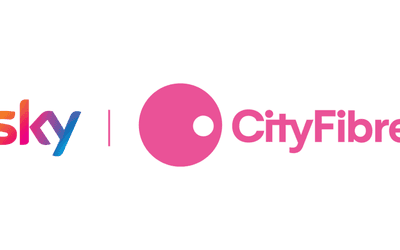Why do these mid-contract price increases happen?
Broadband providers often include clauses in their terms and conditions that allow them to raise prices even while a customer is still under contract. These increases are typically linked to inflation, using the Consumer Price Index (CPI) or Retail Price Index (RPI), with an additional percentage on top.
Many providers justify these hikes on rising operational costs, infrastructure investments, and inflationary pressures. However, for consumers locked into fixed-term agreements, these unexpected increases can feel unfair.
Will I be told in £ or % about this year’s price increase?
It all depends on when you signed your contract.
Broadband, mobile phone and pay TV customers must now be told upfront in pounds and pence about any price rises they will incur and when these will happen in their contract, under new consumer protection rules announced by telecom regulator, Ofcom.
Under new rules, from January 2025, any price written into a customer’s contract needs to be set out in pounds and pence, prominently, transparently and at the point of sale. So when they sign up, providers will need to be totally clear about when and how much any prices changes will happen.
This change will depend on when you took your contract out. So, for example, if you are a BT customer, anyone that took their contract out before 10th April 2024, will still be facing the 6.4% inflation increase. But, anyone after this date, will be looking at a straight forward £3 monthly increase.
Which providers will be increasing their price mid-contract from April 2025?
Let’s take a look at whether you’ll be facing a price increase and whether this will be inflation-based or a fixed-rate price increase.
Remember that you should be exempt from these if you are identified as vulnerable or on broadband social tariffs. Also remember that you can avoid these mid-price rises by switching if your initial contract period has run out.
If you signed a new contract before 9 January, 2025, come April 2025 you’ll be charged an extra 7.5% (February RPI rate + 3.9%) per month.
Those who signed up after will have a £3.50 increase added to their monthly bill.
There is no option to cancel for free unless you are out of contract.
Those who have been on the same BT contract since before 10 April 2024, your inflation-linked price increase will be 6.4% on 31 March.
If you started your current contract after, your broadband bill will go up by £3 a month.
However, new customers signing up now – March 2025 – will have their price locked until April 2026.
If you’re not happy with any price increases you won’t be able to cancel your contract or switch without paying an early termination fee, unless you are out of contract.
Sky is increasing its broadband prices by an average of 6.2% for almost all of its customers, even those who are mid-contract, in April 2025.
Sky does broadband increases differently from all other providers (except for NOW which is part of the Sky family). It doesn’t include a specific annual price rise in its contract when you sign. And, it is sticking to a % rise rather than pounds and pence announcement.
But because of this you are allowed to leave your contract within 30 days of being notified if you are not happy with the increase. Because you never signed up to these rises in your initial contract.
NOW Broadband’s 75Mbps and 100Mbps full fibre packages will increase by £3 a month from April 1, 2025. The 300 Mbps package will increase by 50p per month.
Like Sky, you are free to cancel contract or switch provider within 30 days if you are not happy with your new price.
Vodafone broadband customers that signed their current contract before 2 July 2024 will face a 6.4% inflation-linked price increase on 1 April.
Those who signed up after will see their broadband bill go up by £3 a month.
Because annual price rises are part of Vodafone’s terms and conditions when you sign up, you won't be able to cancel your contract early without paying an exit fee.
If you signed your Plusnet current contract before 10 April 2024, your inflation-linked price increase will be 6.4% on 31 March.
For those who started their contract on or after 10 April will see their broadband bill go up by £3 a month.
If you're currently in the middle of your fixed term, you won't be able to cancel your contract early without paying an exit fee.
If you signed up for Three mobile or home broadband before 8 September 2024 your monthly charge will increase on 1 April 2025 by an inflation-linked price increase of 6.4%.
For those who joined after, your monthly charges will increase by a fixed amount based on your plan (these range from £1 - £2).
If you don't agree with the price increase, you can contact Three and cancel your contract within 30 days without paying a fee.
Which providers won’t be increasing their price mid-contract?
Some – mainly the smaller, alternative networks – commit to a fixed price that will stay the same until the end of your contact. In 2025 these providers will not be increasing their monthly costs mid-contract:
Brsk
Rebel
Trooli
Hyperoptic
Zzoomm
Fibrus
Community Fibre (prices fixed until April 2026, then they will increase by £2)
Can I leave mid-contract if prices go up?
Unfortunately with most monthly contracts you'll have accepted terms and conditions which include the clause that the suppliers can increase your monthly bill in accordance with inflation each year. With Sky and NOW the exception. So, if you want to exit, you'll probably have to pay a penalty.
These fees can be steep. For example, if you sign up to an 18 month contract and want to cancel in the second month, you might have to pay 16 months’ worth of fees.
The rules change slightly if you’re still in the minimum term of your broadband contract. If a provider increases its prices, and you didn’t know about this increase before (check it hasn’t been written into the terms and conditions of your contract), you can then cancel and switch to any other provider without an exit fee as long as you do so within 30 days of being notified about the rise.
End of contract price rises
If your price is rising because your contract is coming to an end, or if your contract end date has already passed, you're free to find a cheaper deal.
This is because your agreed term has ended and you have paid your committed amount, leaving you able to find a new deal that's better suited for your household.
Geoff Pestell, CEO at Fibre Compare, says:
"Broadband price rises are becoming a common frustration for UK consumers, but that doesn’t mean you have to simply accept them. If your provider increases your monthly bill mid-contract, it’s important to know your options and take action to avoid overpaying."
"Customers have the right to leave their contract penalty-free if a price rise wasn’t clearly set out when they signed up. Even if you can’t leave, negotiating with your provider or switching to a better deal could save you money. There are also social tariffs available for those on lower incomes, ensuring that broadband remains affordable for everyone."
Find a better broadband deal today with Fibre Compare



